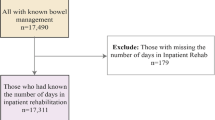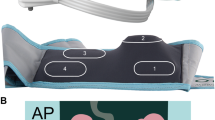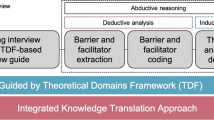Abstract
Study design:
A cross-sectional survey.
Objectives:
To document bowel care practices of chronic spinal cord injury (SCI) patients in Pakistan.
Settings:
Outpatient Department, Armed Forces Institute of Rehabilitation Medicine, Rawalpindi, Pakistan.
Methods:
A total of 50 adult patients (18–65 years) with SCI of duration >12 months were sampled by convenience sampling. Medical record was reviewed, detailed neurological examination was performed and face-to-face semistructured interviews were conducted. Data were collected and analysed using SPSS v10. Frequencies and descriptive statistics were calculated for the various variables.
Results:
Most of the patients (29) were males. The mean age was 33±11 years. Majority of the patients (76%) had thoracic-level injury. In all, 43 patients gave a history of occasional or regular faecal incontinence. In addition, 17 patients reported the regular use of laxatives whereas 22 used bulk-forming agents on a regular basis. Majority of the patients (56%) had at least one bowel evacuation daily. In addition, 31 patients required 16–30 min to complete the bowel evacuation. Approximately half (54%) required assistance in bowel evacuation.
Conclusion:
A large number of patients with chronic SCI in Pakistan had faecal incontinence. A majority of patients used methods such as suppositories, laxatives and bulk-forming agents to control the frequency and duration of the bowel programme. Adherence to standard bowel care programme and practices are influenced by sociocultural factors and lack of education on the part of the patients.
Similar content being viewed by others
Log in or create a free account to read this content
Gain free access to this article, as well as selected content from this journal and more on nature.com
or
References
Glickman S, Kamm MA . Bowel dysfunction in spinal-cord-injury patients. Lancet 1996; 347: 1651–1653.
Benevento BT, Sipski ML . Neurogenic bladder, neurogenic bowel, and sexual dysfunction in people with spinal cord injury. Phys Ther 2002; 82: 601–612.
Ng C, Prott G, Rutkwski S, Li Y, Hansen R, Kellow J et al. Gastrointestinal symptoms in spinal cord injury: relationships with level of injury and psychologic factors. Dis Colon Rectum 2005; 48: 1562–1568.
Lynch AC, Anthony A, Dobbs BR, Frizelle FA . Anorectal physiology following spinal cord injury. Spinal Cord 2000; 38: 573–580.
Rathore MF, Rashid P, Butt AW, Malik AA, Gill ZA, Haig AJ . Epidemiology of spinal cord injuries in the 2005 Pakistan earthquake. Spinal Cord 2007; 45: 658–663.
Rathore MF, Hanif S, Farooq F, Butt AW, Ahmed N . Traumatic spinal cord injuries at a tertiary care rehabilitation institute in Pakistan. J Pak Med Assoc 2008; 58: 53–57.
Rathore FA, Farooq F, Muzammil S, New PW, Ahmad N, Haig AJ . Spinal cord injury management and rehabilitation: highlights and shortcomings from the 2005 earthquake in Pakistan. Arch Phys Med Rehabil 2008; 89: 579–585.
Raja IA, Vohra AH, Ahmed M . Neurotrauma in Pakistan. World J Surg 2001; 25: 1230–1237.
Haas U, Geng V, Evers GC, Knecht H . Bowel management in patients with spinal cord injury—a multicenter study of the German speaking society of paraplegia (DMGP). Spinal Cord 2005; 43: 724–730.
Hocevar B, Gray M . Intestinal diversion (colostomy or ileostomy) in patients with severe bowel dysfunction following spinal cord injury. J Wound Ostomy Continence Nurs 2008; 35: 159–166.
De Looze DA, Van Laere M, DeMuynck MC, Beke R, Elewaut AG . Constipation and other chronic problems in spinal cord injury patients. Spinal Cord 1998; 36: 63–66.
Lynch AC, Wong C, Anthony A, Dobbs BR, Frizelle FA . Bowel dysfunction after spinal cord injury: a description of bowel function in a spinal cord-injured population and comparison with age and gender matched controls. Spinal Cord 2000; 38: 717–723.
Author information
Authors and Affiliations
Corresponding author
Ethics declarations
Competing interests
The authors declare no conflict of interest.
Rights and permissions
About this article
Cite this article
Yasmeen, R., Rathore, F., Ashraf, K. et al. How do patients with chronic spinal injury in Pakistan manage their bowels? A cross-sectional survey of 50 patients. Spinal Cord 48, 872–875 (2010). https://doi.org/10.1038/sc.2010.46
Received:
Revised:
Accepted:
Published:
Issue date:
DOI: https://doi.org/10.1038/sc.2010.46
Keywords
This article is cited by
-
Current and future international patterns of care of neurogenic bladder after spinal cord injury
World Journal of Urology (2018)
-
Constipation in degenerative cervico-thoracic spine myelopathy: a simple co-existence or a complex inter-relationship?
European Spine Journal (2017)



